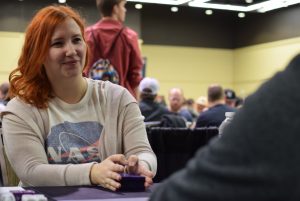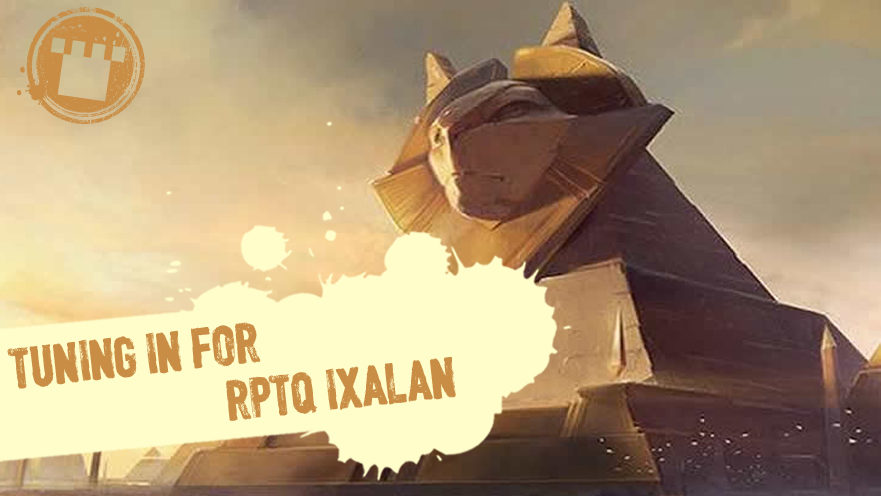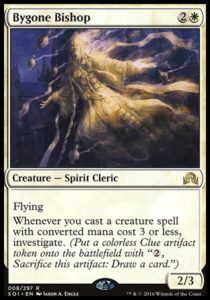Last weekend marked my first time playing in a Regional Pro Tour Qualifier (RPTQ) in person. While I had played previous RPTQ’s online, and with minimal outside support from my testing group, this would be my first time testing with a group of fellow Magic players who shared my goals, as well as making the voyage to a game store to sleeve up cards and sling spells.
Living in the barren north of Edmonton (that’s in Canada, far away from most civilization), the closest RPTQ was determined to be a short 16-hour jaunt away at Mox Boarding House in Bellevue. So our motley crew of playtesters booked an AirBnB and prepared for the drive. But surprisingly (or unsurprisingly, if you’ve ever prepared for a large tournament), the drive was far from the hardest part. This RPTQ was a short two weeks after the Pro Tour, where Ramunap Red Ahn-Crop crashed onto the scene. In the weeks that followed, the metagame shifted so quickly, both online and in paper, that it was hard to keep up. Limited data from Magic Online meant that most insights among our testing group were anecdotal, and more than a few members of our testing group didn’t settle on a deck until the day before the event.
Grand Prix Minneapolis shone some light on what we might expect at the RPTQ’s, with Zombies and B/G Constrictor dominating the Top 16 and some new and exciting decks (Sultai Reanimator and W/U Approach of the Second Sun) making big waves. With these results in mind, we began to formulate an expected metagame: approximately 20% of people on Ramunap Red, 30% on Zombies, 20% on B/G Constrictor, and 30% on assorted big-mana decks such as Ramp, Control, and Reanimator. It was with this metagame in mind that I settled on an off-the-wall brew for my RPTQ:
Monumental White | Chantelle Campbell
4 Thraben Inspector
4 Selfless Spirit
3 Glory-Bound Initiate
4 Hanweir Militia Captain
2 Anointer Priest
4 Bygone Bishop
2 Gisela, the Broken Blade
2 Archangel Avacyn
1 Declaration in Stone
2 Always Watching
3 Oketra’s Monument
2 Dusk//Dawn
3 Cast Out
15 Plains
2 Scattered Groves
4 Shefet Dunes
3 Westvale Abbey
Sideboard
2 Authority of the Consuls
2 Thalia, Heretic Cathar
1 Fragmentize
1 Forsake the Worldly
3 Crook of Condemnation
2 Declaration in Stone
1 Archangel Avacyn
2 Fumigate
1 Solemnity
Buy this deck from Card Kingdom!
In testing, this list performed extremely well against both Mono-Red and Zombies, and it had an alright Black-Green match-up. Feeling comfortable against 70% of the field, I decided to lock in the Monday before the event. This gave me four days to test and refine before packing up for the trek.
Since I settled on this list less than a week before the RPTQ, there are some simple optimizations that, looking back, I feel I missed. Running Desert of the True instead of Scattered Groves to be able to sacrifice it to Shefet Dunes, for instance. I also feel some numbers could have been better optimized for the expected metagame, and I was making tweaks up until the night before the tournament. In a last-minute decision, I decided to cut down from 25 to 24 lands and increase the amount of graveyard hate out of the board, as I expected to face several graveyard-based decks.
It’s important to note that this was not a deck that the team settled on together. In fact, I was the only person to end up playing it at the RPTQ, although my testing partner (and general life partner) Jesse piloted it at the Last Chance Qualifier the previous day. In fact, of the four members of our playtesting group playing at Mox Boarding House on Sunday, every person ended up piloting a different deck.
On Sunday, 57 people gathered at Mox Boarding House. After getting over my initial shock at how stunning the venue was (chandeliers and hardwood floors!) and grabbing a bite at the restaurant, I settled in for a day of Magic. My day did not start off as well as I had hoped, as I had to face off against U/R Control (a notably bad match-up) in the first round. I was able to get a game from of my opponent, but the variety of sweepers available to him post-board proved too much for me. A quick round two against Temur Energy saw me mulliganing in Game 1 and flooding out, then failing to draw the lands I needed in Game 2.
Just like that, I was 0-2 and out of Top 8 contention. I decided to play it out for the fancy Top 16 playmat (Vraska AND dinosaurs, how could I not!) and won my third round against R/G Ramp, before losing the fourth round to Zombies. In testing, Zombies had been an incredibly favorable match-up, but more mana issues erased any advantage I felt I had.
If I could go back and play the event again, I still feel that this deck is a reasonable choice. Despite the tough draws, I found that the metagame was about what I expected: looking around the room, we saw that approximately 50% of attendees had sleeved up Zombies, 20% were on U/R Control, 10% had brought Ramunap Red, and the remaining 20% were playing a variety of unique decks. Our testing had (mostly) successfully worked to identify the expected metagame, and from there we had been able to formulate our plans of attack.
Going forward, I hope that we are able to better work as a team to help each other test theories, decks, or even individual card choices. I believe that if we provide structure to our testing process, in terms of metagame evaluation and deck selection, we can come to a place where we are able to choose and begin fine-tuning our deck choices more quickly, even if we don’t settle on a “team deck.” While I’m obviously disappointed that I wasn’t able to lock up that elusive Pro Tour invitation, I believe this was an important learning experience for not only me, but for our entire team as we all work to improve. One member of our team was able to pilot W/U God-Pharaoh’s Gift to victory, and it truly felt like we all won through his success. I know I’m excited to help Mat test for the upcoming Pro Tour, and to apply what we learned from this past weekend to that experience.

A Spike at heart, Chantelle spends her free time prepping for tournaments, working toward the ever-elusive Mythic Championship, and championing other competitive ladies. She’s a combo aficionado and seasoned aggro deck player, and Standard and Modern are her preferred formats. Growing and improving as a player, both technically and in her mental game, are of the utmost importance to her.


